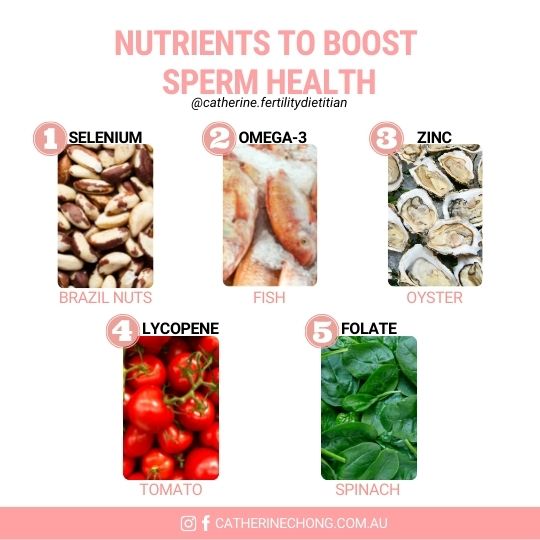3 Essential Nutrients To Combat Male Infertility
Planning to conceive is exciting but can be highly frustrating if it takes longer than expected. Often, most of the focus is on the female side.
Male factor infertility is behind 30% of infertility cases. According to recent research, more than 56 million men suffered from infertility up to 2019 globally. The prevalence of male infertility has increased from 1990 to 2019, with a growth rate of 76.9% compared to 1990.
In this blog post, we discuss the male infertility issue and the three essential nutrients that may be helpful to improve sperm health.
How Nutrition and Lifestyle Choices Contribute To Male Infertility
Nutrition and lifestyle choices can significantly impact male fertility. Smoking and alcohol consumption, for instance, can impair sperm parameters such as concentration, motility, and morphology and increase oxidative stress and sperm DNA fragmentation.
Similarly, obesity and poor diet are linked to decreased sperm quality, and high caffeine intake has been associated with sperm DNA defects and reduced sperm motility.
Older men exhibit higher rates of sperm DNA fragmentation, which is associated with a decrease in sperm quality and an increased risk of genetic abnormalities in offspring.
Nutrition Strategies for Men to Enhance Fertility

Here are five essential nutrients to consider when addressing male infertility:
1. The Role of Zinc in Improving Male Infertility
Zinc plays a crucial role in male infertility by helping to increase testosterone levels, prevent DNA chromosome changes, and improve sperm count. It also has antioxidant properties that protect sperm from oxidative damage caused by free radicals.
Top Food Sources of Zinc:
- Oysters: The best source of zinc.
- Red Meat: Opt for lean cuts and avoid processed meats.
- Sundried Tomatoes
- Pumpkin Seeds
- Cashew Nuts
If you rely on plant-based foods for zinc, remember that your daily requirement increases by 50%. This is because zinc absorption from these foods is less efficient than that from animal sources. Planning your diet accordingly can help you meet your zinc needs.
If you are thinking about starting a zinc supplement, consult your fertility dietitian, as high doses of zinc can interfere with the absorption of other nutrients
2. How Folate Enhances Male Fertility
Folate is essential for making DNA and genetic materials for new cells. It is not just important for women who are trying to conceive. Low concentrations of folate in seminal plasma may also increase sperm DNA damage.
Taking a folate supplement is an option, but it is best to discuss this with a fertility dietitian. Meanwhile, start to incorporate more foods that are naturally high in folate into your diet:
- Liver (depending on individual preferences)
- Legumes: Black beans, lentils, chickpeas, peanuts
- Nuts and Seeds: Hazelnuts, sunflower seeds
- Vegetables: Seaweed, spinach, asparagus, broccoli, brussels sprouts, lettuce
- Avocado
- Fortified Foods: Such as breakfast cereals
Including these foods in your diet can help improve folate levels naturally and support male fertility.
3. Omega-3 Fatty Acids and Male Infertility
Omega-3 is a healthy fat with powerful antioxidant abilities that help it reduce inflammation and oxidative stress within the body. It has also been found to help increase sperm count.
EPA and DHA are two common types of omega-3 fatty acids. A recent review found that infertile men’s ability to conceive increased after supplementation with DHA and EPA over eight months. The supplementation increased total sperm count and concentration.
The current recommendation is to consume 2-3 servings (150g per serving) of fish per week. Oily fish, such as salmon, trout, sardines, and mackerel, are the best EPA and DHA (omega-3) sources, providing over 2000 mg of omega-3 per 150g. If you do not meet the suggested weekly fish intake, you may want to consider taking an omega-3 supplement.
Read our previous blog post here to learn more about which foods to avoid to enhance fertility.
Bottom Line
- Male infertility accounts for 30% of infertility cases and has significantly increased globally.
- Smoking, alcohol, obesity, poor diet, and high caffeine intake are all contributing to male infertility.
- Having the proper diet and nutrition can enhance male fertility.
